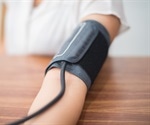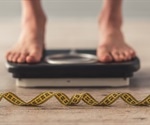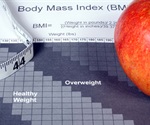
Latest Eating Disorders News and Research
New templates for improving assessment of senior cancer patients
While older adults, defined as those 65 and older, make up the largest percentage of cancer patients and survivors, this group is not adequately represented in clinical trials, research at the University of Cincinnati has shown.
King's researchers launch largest ever study into eating disorders
Researchers at King's College London have launched the largest ever study into eating disorders. Partnering with the National Institute for Health Research BioResource and the eating disorder charity Beat, they aim to recruit at least 10,000 people in England who have experienced an eating disorder at some point in their life to a pioneering new study that aims to unlock the secrets of eating disorders.
Behavioral therapy assisted by a smartphone app helps patients with binge eating disorders
Behavioral therapy assisted by a smartphone app, delivered via telemedicine by a health coach, was an effective treatment for several symptoms of binge eating disorders, according to a study conducted by researchers from the Icahn School of Medicine at Mount Sinai and published this week in The American Journal of Psychiatry.
Exercise addiction more common among people with eating disorder
New research shows that exercise addiction is nearly four times more common amongst people with an eating disorder.
UK sees sharp rise in hospital admissions for eating disorders
The number of people being admitted to hospital for eating disorders in the UK has increased by more than one-third (37%) over the last two years.
Researchers find many psychiatric disorders share the same gene variants
An international team of researchers has found that many psychiatric disorders share a common and specific set of gene variants.
Study examines link between social media and disordered eating behaviors in young adolescents
New research indicates that social media is leading young adolescent girls and boys down a worrying path towards developing body image issues and eating disorder behaviors - even though they are smartphone savvy.
Eating disorder can affect pregnancy outcome and offspring’s health
A pregnant woman with an eating disorder needs to be screened for complications more carefully because she is high-risk.
Study highlights importance of parents in defining eating disorder recovery
Three in four patients with anorexia nervosa -- including many with challenging illness -- make a partial recovery. But just 21 percent make a full recovery, a milestone that is most likely to signal permanent remission.
Eating disorders increase risk of premature birth
Pregnant women with eating disorders should undergo extended pregnancy screenings considering their increased risk of complications. That is the conclusion from a study by researchers at Karolinska Institutet in Sweden published in the journal JAMA Psychiatry.
Intermittent fasting – not just a fad for cardiac patients
A new study suggests patients with cardiac catheterization have a longer lifespan if they carry out intermittent fasting.
Patients with anorexia nervosa face similar health complications as their counterparts with low BMI
Adolescents and young adults with anorexia nervosa whose weight is in the healthy, overweight or obese ranges face similar cardiovascular and other health complications as their counterparts with low body mass index (BMI), according to a new study led by researchers at UCSF.
Study: Normal body weight can hide eating disorder in teens and young adults
Teens and young adults with atypical anorexia nervosa can have normal body weights and still be dangerously ill, according to a new study led by researchers at the Stanford University School of Medicine and the University of California-San Francisco.
Anorexia rates rising in younger children
Increasing numbers of young children in the UK and Ireland just might be developing anorexia nervosa, a dangerous eating disorder. A new study published online in the journal BMJ Open shows that the number of 8-12 year olds with this condition is now two times as high as in 2006, when it was 1.5/100,000.
Hope for stressed-out parents of extremely picky eaters
A new study published in the journal Cognitive and Behavioral Practice brings hope to parents who are at their wits’ end over their children’s refusal to eat one or more food groups.
Researchers find behavioral, biological similarities between compulsive overeating and addiction
Does yo-yo dieting drive compulsive eating? There may be a connection. According to Boston University School of Medicine researchers the chronic cyclic pattern of overeating followed by undereating, reduces the brain's ability to feel reward and may drive compulsive eating.
Lack of physician training about eating disorders leading to avoidable deaths
A recent article in the British Medical Journal highlighted a United Kingdom parliamentary report indicating that avoidable deaths are occurring due to lack of physician training about eating disorders in the National Health System.
UC San Diego's CMCR announces research grants to explore cannabis for medical applications
The Center for Medicinal Cannabis Research (CMCR) at University of California San Diego School of Medicine, the nation's oldest research center for scientific inquiry into the safety and efficacy of cannabis, has announced $3 million in research grants to explore new applications of cannabis for a number of novel medical applications.
Is mental illness being diagnosed correctly?
An important new piece of research appearing in the journal JAMA Psychiatry questions the accuracy of current diagnostic methods used in mental illness, and the true relevance of the diagnoses to the underlying disturbances in the brain’s function.
Hundreds of trans people regret changing their gender, says trans activist
A transactivist has claimed that hundreds of have gender reassignment regret the decision and want to return to their original sex.




















































No hay comentarios:
Publicar un comentario